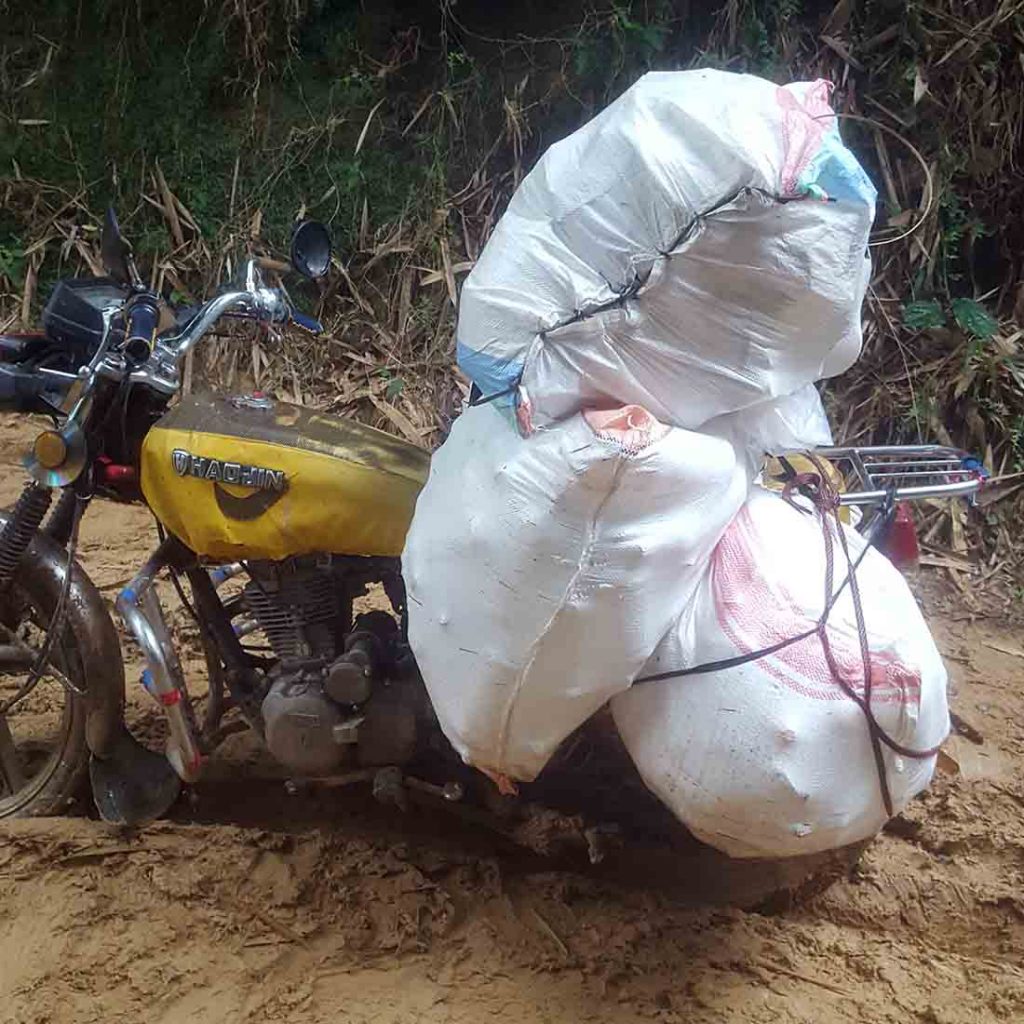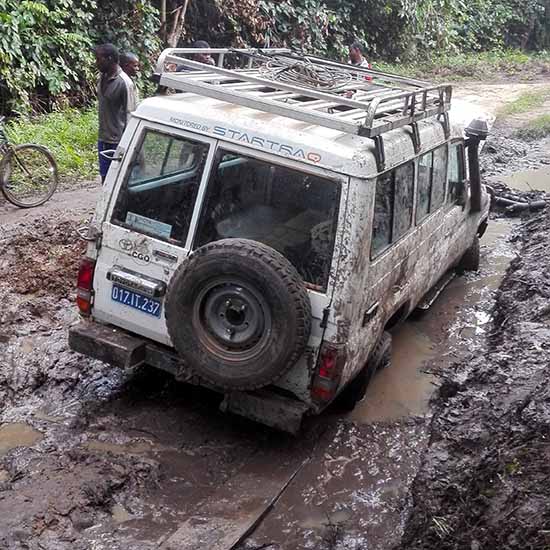A Long, Winding Road: ASSP Overcomes Challenges To Deliver Medicine In DR Congo
The arrival of the ASSP shipment of medication and equipment such as hospital beds, mattresses and diagnostic machines is worthy of a village celebration!
Written by Linda James
IMA World Health
Originally posted at www.imaworldhealth.org
Whether in the heat of the day, during a torrential downpour or under the twinkling stars, everyone gathers to cheer when the trucks, motorcycles, canoes or even porters arrive with the boxes of much-needed medication for malaria, respiratory infections, and diarrhea, among others. Throughout the year, dedicated teams work to ensure that these medications are delivered to save lives and build healthy communities in the Democratic Republic of Congo.
The trip to the health centers is long and winding. The generic drugs arrive in the Democratic Republic of Congo via plane and boat from around the world. Once 50-tons of life-saving drugs and equipment leave the provincial capital, the delivery route is not always a straight one. The challenges are many. It can take about three weeks of complicated travel from Kisangani in Northern Congo to reach the Lubutu health zone, 250 km (155 miles) south of Kisangani. This route services multiple health zones and a population of approximately 400,000 inhabitants. The complications require dedication and creativity.
The delivery truck leaves the depot in the capital and reaches the river in about 45 minutes. Alas, the bridge is no longer functioning. The cartons, large and small, must be unloaded from the truck by hand, placed on porters’ heads, walked to and loaded onto the canoes at the riverside and rowed to the bank on the other side of the river. That means 30-40 trips back and forth across the river to transport all 50 tons. The same process repeats itself except there is no longer a truck to carry the load on the other side of the river. Then, the team must find available transportation – trucks, 4×4 vehicles and motorcycles.


Moving Medicine is like Moving Mountains
On the poor roads and almost invisible paths ahead, a jeep or motorcycle can easily break down or get stuck in the mud during the rainy season. What happens if that occurs in the middle of the night and the nearest telephone network reception is 3 miles away through the jungle? If there is a village nearby, oftentimes the villagers are able to help resolve the problem and get the team on its way. It takes a village!
The medication arrives, the village gathers and the pharmacy is stocked. Now when a mother arrives at the ASSP health center with her 2-year old son in distress suffering from the fever and dehydration of malaria, she and her son are offered treatment and relief.
A dedicated IMA World Health team moved mountains for weeks to get the medication to the village. As a result, that child will soon be running carefree and the mother can turn back to the care of the entire family.
The medication arrives, the village gathers and the pharmacy is stocked. Now when a mother arrives at the ASSP health center with her 2-year old son in distress suffering from the fever and dehydration of malaria, she and her son are offered treatment and relief.
A dedicated IMA World Health team moved mountains for weeks to get the medication to the village. As a result, that child will soon be running carefree and the mother can turn back to the care of the entire family.
Top left: Transportation of medical supplies on the Ferekeni route often gets muddy, whether traveling in a motorcycle or jeep. (Photo by Paulin Kaza/IMA World Health)
Bottom left: This one battles through mud in the Kampene Health Zone. (Photo by Jean-Claude Mboma/IMA World Health)
QUICK CONTACTS
Recent Posts
Quarter 1 Results
Number of pregnant women who received three doses of IPT while attending antenatal care: 58,495Number and percentage of 1-yr-old children vaccinated against measles: 78,123Number of Couple Years of Protection (CYPs) achieved through family planning service provision:...
Saved by my Son: A Tushinde Ujeuri Success Story
"The support from the Tushinde program has restored my will to live." Tushinde Ujeuri Project brings hope to one survivor of sexual and gender-based violence in DRC It was mid afternoon, and my 10 year-old son and I were walking home from working in the fields. When...
Combatting Malnutrition in DRC: A Nutrition Success Story
Community relays in Ndesha, Kasai Central are successfully combatting malnutrition in the DRC thanks to ASSP's nutrition training. Combatting Malnutrition One Maman at a TimeMado Betu was a young child of two years and four months but was frail and unable to walk when...


